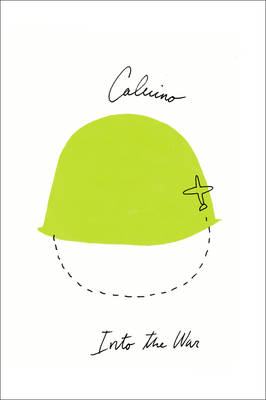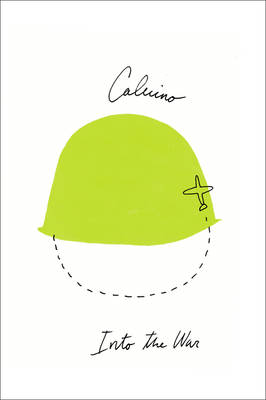
- Afhalen na 1 uur in een winkel met voorraad
- Gratis thuislevering in België vanaf € 30
- Ruim aanbod met 7 miljoen producten
- Afhalen na 1 uur in een winkel met voorraad
- Gratis thuislevering in België vanaf € 30
- Ruim aanbod met 7 miljoen producten
Zoeken
Omschrijving
Appearing here in its first English translation, Into the War contains three stories drawing on Italo Calvino's memories of the Second World War in Italy.
"This book deals both with a transition from adolescence into youth and with a move from peace to war: as for very many other people, for the protagonist of this book 'entry into life' and 'entry into war' coincide." -- from the Author's Note
These three stories, set during the summer of 1940, draw on Italo Calvino's memories of his own adolescence during the Second World War, too young to be forced to fight in Mussolini's army but old enough to be conscripted into the Italian youth brigades.
The callow narrator of these tales observes the mounting unease of a city girding itself for war, the looting of an occupied French town, and nighttime revels during a blackout. One of Calvino's only works of autobiographical fiction, Into the War offers both a glimpse of this writer's extraordinary life and a distilled dram of his wry, ingenious literary voice.
All three stories attest to the potentially magical, transformative space of adolescence . . . The seeds of the later Calvino -- the fabulist who worked profound moral and ethical points into his narratives -- are all here." -- Joseph Luzzi, Times Literary Supplement
"This book deals both with a transition from adolescence into youth and with a move from peace to war: as for very many other people, for the protagonist of this book 'entry into life' and 'entry into war' coincide." -- from the Author's Note
These three stories, set during the summer of 1940, draw on Italo Calvino's memories of his own adolescence during the Second World War, too young to be forced to fight in Mussolini's army but old enough to be conscripted into the Italian youth brigades.
The callow narrator of these tales observes the mounting unease of a city girding itself for war, the looting of an occupied French town, and nighttime revels during a blackout. One of Calvino's only works of autobiographical fiction, Into the War offers both a glimpse of this writer's extraordinary life and a distilled dram of his wry, ingenious literary voice.
All three stories attest to the potentially magical, transformative space of adolescence . . . The seeds of the later Calvino -- the fabulist who worked profound moral and ethical points into his narratives -- are all here." -- Joseph Luzzi, Times Literary Supplement
Specificaties
Betrokkenen
- Auteur(s):
- Uitgeverij:
Inhoud
- Aantal bladzijden:
- 128
- Taal:
- Engels
Eigenschappen
- Productcode (EAN):
- 9780544146389
- Verschijningsdatum:
- 16/09/2014
- Uitvoering:
- Paperback
- Formaat:
- Trade paperback (VS)
- Afmetingen:
- 132 mm x 201 mm
- Gewicht:
- 113 g

Alleen bij Standaard Boekhandel
+ 43 punten op je klantenkaart van Standaard Boekhandel
Beoordelingen
We publiceren alleen reviews die voldoen aan de voorwaarden voor reviews. Bekijk onze voorwaarden voor reviews.












